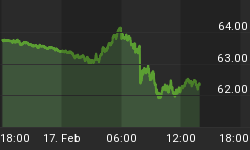The ride-sharing race is heating up as Chinese major ride-sharing company Didi, also known as the “Uber of China” and an actual Uber partner, debuted on the NYSE in one of the biggest China-based companies listings in the United States.
Didi started trading in New York at about $16.65, which is almost a 20% jump from its initial public offering price of $14 a share.
Raising $4.4 billion from the stock sale, Didi’s IPO is the second biggest US share offering by a Chinese company, followed by Alibaba's in 2014.
Didi dominates ride-hailing in its home country, and after Uber failed in challenging it in Chinese market, they became partners, with Uber selling its China operations to Didi.
Uber is Didi’s second-largest shareholder, with a 12.8% stake. Following the IPO, Uber’s share is valued at around $8 billion. Japanese investment giant SoftBank is Didi’s largest shareholder with a 21.5% stake. Chinese tech giant Tencent owns a 6.8% stake followed by Alibaba and Apple.
Much like ridesharing companies in the US, Didi has also had its share of losses in recent years. In its IPO, the company disclosed that it ran $1.6 billion in losses in 2020, following losses of $1.5 billion in 2019 and $2.3 billion in 2018.
In addition to that, Didi is a part of the Chinese authorities' crackdown on tech companies. Earlier this month, Reuters reported that Didi was being investigated for antitrust concerns.
Yet, Didi has shown signs of profitability having reported net earnings of $837 million in the first quarter of 2021 on revenue of $6.44 billion
In comparison, Uber lost $108 million on revenues of $2.90 billion in the first quarter of 2021.
As many other industries, ridesharing also suffered during the pandemic. During the peak of the pandemic, ride-shares in the US plunged 60–70% in the US and nearly 80% in the European market.
However, Uber did kind of dodge a bullet thanks to its Uber Eats business, which completed its purchase of San Francisco-based delivery service Postmates for $2.6 billion.
In April 2021, third-party delivery orders were up 204% versus April 2019. In May, nearly 30% of American consumers had ordered from one of the food delivery services and most likely even now when dining-in is open, the trend won’t fall that much.
Yet, even as more than two-thirds of the ride-hailing demand has recovered, ridesharing companies are facing a supply shortage. Many drivers have been reluctant to return to the job even though the companies are spending millions of dollars to motivate drivers to start working again. Uber alone announced a $250 million driver stimulus program.
As pandemic restrictions ease, the global ride-hailing market size is projected to grow at a rate of 55.6% this year compared to 2020. It is expected to reach $117.34 billion by 2021 from $75.39 billion in 2020.

















